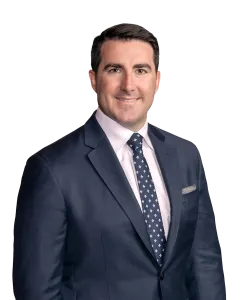Friday Enforcement Wrap: DOJ Moves to Dismiss 11 FCA Cases
Headlines that Matter for Companies and Executives in Regulated Industries
Litigation News
DOJ Moves to Dismiss 11 FCA Cases
In a surprising development, DOJ said in a Texas federal court filing this week that it plans to dismiss 11 nearly identical complaints brought against drugmakers such as Amgen Inc., AstraZeneca PLC, Biogen Inc., and Eli Lilly & Co., among others. The cases were all brought with the backing of an organization called the National Health Care Analysis Group, which works to generate FCA cases. Each complaint asserts the same theory of FCA liability — that the pharmaceutical companies violated the Anti-Kickback Statute by, among other things, engaging in improper “white coat marketing” by hiring nurses to engage in impermissible promotional activity.
DOJ’s motions to dismiss call NHCA a “professional relator” and complain that NHCA duplicated complaints across the country by using nearly identical allegations as to each company sued. Ultimately, the government found “the allegations to lack sufficient merit to justify the cost of investigation and prosecution” and concluded that “[t]hese relators should not be permitted to indiscriminately advance claims on behalf of the government against an entire industry that would undermine common industry practices the federal government has determined are, in this particular case, appropriate and beneficial to federal healthcare programs and their beneficiaries.” These dismissals mark what is likely the highest profile use of the so-called Granston memo, which encourages federal prosecutors to more aggressively seek to dismiss weak FCA lawsuits filed by whistleblowers. We will continue to monitor these pending motions to dismiss. For an example of one of the eleven cases at issue, see the DOJ motion to dismiss filed in U.S. ex rel. Health Choice Group LLC v. Bayer Corp. et al., No. 5:17-cv-00126 (E.D. Tex. 2017).
Eleventh Circuit Affirms $10.5 Million Fraud Convictions of Two Scientists
A three-judge panel affirmed a jury verdict convicting two scientists, a husband and wife, of wire fraud, and other counts, for lying on proposals to obtain federally-funded research contracts and grants. Through their misrepresentations and forgeries, the two scientists received contracts and grants collectively worth $10.5 million. The couple appealed to the 11th Circuit and argued that because the research was completed and the results were published, the court should reverse the wire fraud charges. The 11th Circuit found the arguments unpersuasive and affirmed the jury verdict and sentencing. The court noted that due to the pervasiveness of the fraud, the scientists could have received even higher sentences than the 15-year and 13-year sentences they received. The couple was also ordered to pay $10.5 million in restitution. The case is United States v. Mahmoud Aldissi, No. 15-14193 (11th Cir.).
Litigation Developments
Federal Jury Convicts Pharmacy Owner in Medicare Part D Fraud Scheme
According to evidence presented during a two-day trial in a California federal court, a jury found that a pharmacy owner engaged in a scheme to submit claims to Medicare Part D for prescription drugs that her pharmacy never actually ordered from drug distributors and thus were never provided to Medicare beneficiaries. The defendant allegedly used fake invoices for purchases that never took place in an effort to conceal the fraudulent scheme and submitted more than $1.3 million worth of claims to Medicare. The jury convicted the defendant of one count of health care fraud and two counts of wire fraud. Sentencing is scheduled for February. The press release is here.
Florida Federal Judge Sentences Unlicensed Doctor to Six Years in Prison for Role in Medicare Fraud Scheme
A Florida resident was sentenced to six years in prison and ordered to pay over $4.65 million as a result of her pleading guilty to a conspiracy to commit health care fraud. As part of a guilty plea, the defendant admitted that for four years she received kickbacks in exchange for referring Medicare beneficiaries to three home health care agencies. Many of those beneficiaries did not actually qualify for the services. The defendant, who was a doctor in Cuba but is not licensed in the United States, also admitted to preparing medical records as if she were licensed and admitted to seeking increased Medicare reimbursement by changing claims coding. The defendant’s co-conspirator also pled guilty and is awaiting sentencing. The press release is here.
New Jersey Man Charged in $10 Million Health Care Fraud Scheme Against Health Insurance Companies
The US Attorney’s Office for the District of New Jersey filed charges against the chief executive officer of Madison Financial Services (“MFS”), who was also licensed to sell insurance products. The government alleges that the defendant and others used MFS as a parent company in the creation of 11 sham companies, set up for the sole purpose of marketing health insurance coverage to individuals that were not actually employees of the companies. The companies created the appearance of employment status for hundreds of individuals who then sought to obtain health care coverage through Blue Cross Blue Shield benefit plans. The alleged scheme even involved the defendant issuing fake payroll checks to enhance the appearance that the individuals at issue were actually employed. The alleged conspiracy continued from 2009 through 2017 and caused the health insurance companies to pay out more than $10 million in fraudulent claims. The press release is here.
$8.4 Million Medicare Fraud Scheme Results in Seven Year Prison Sentence for Pharmacy Owner
As part of a plea agreement, a pharmacy owner admitted to paying kickbacks to Medicare beneficiaries in exchange for promises that the beneficiaries would fill their prescriptions at his pharmacy and allow the pharmacy to submit claims to Medicare for drugs that were not actually provided to the beneficiaries. The pharmacy owner also admitted to submitting claims to Medicare for expensive prescriptions that the pharmacy never purchased. Medicare paid $8.4 million in claims to the pharmacy for drugs that were never purchased or never provided to Medicare beneficiaries. A federal judge in Florida sentenced the defendant to over seven years in prison and ordered him to pay over $8.4 million in restitution. The press release is here.
Contacts
- Related Practices
-
Read Time
7Minutes




